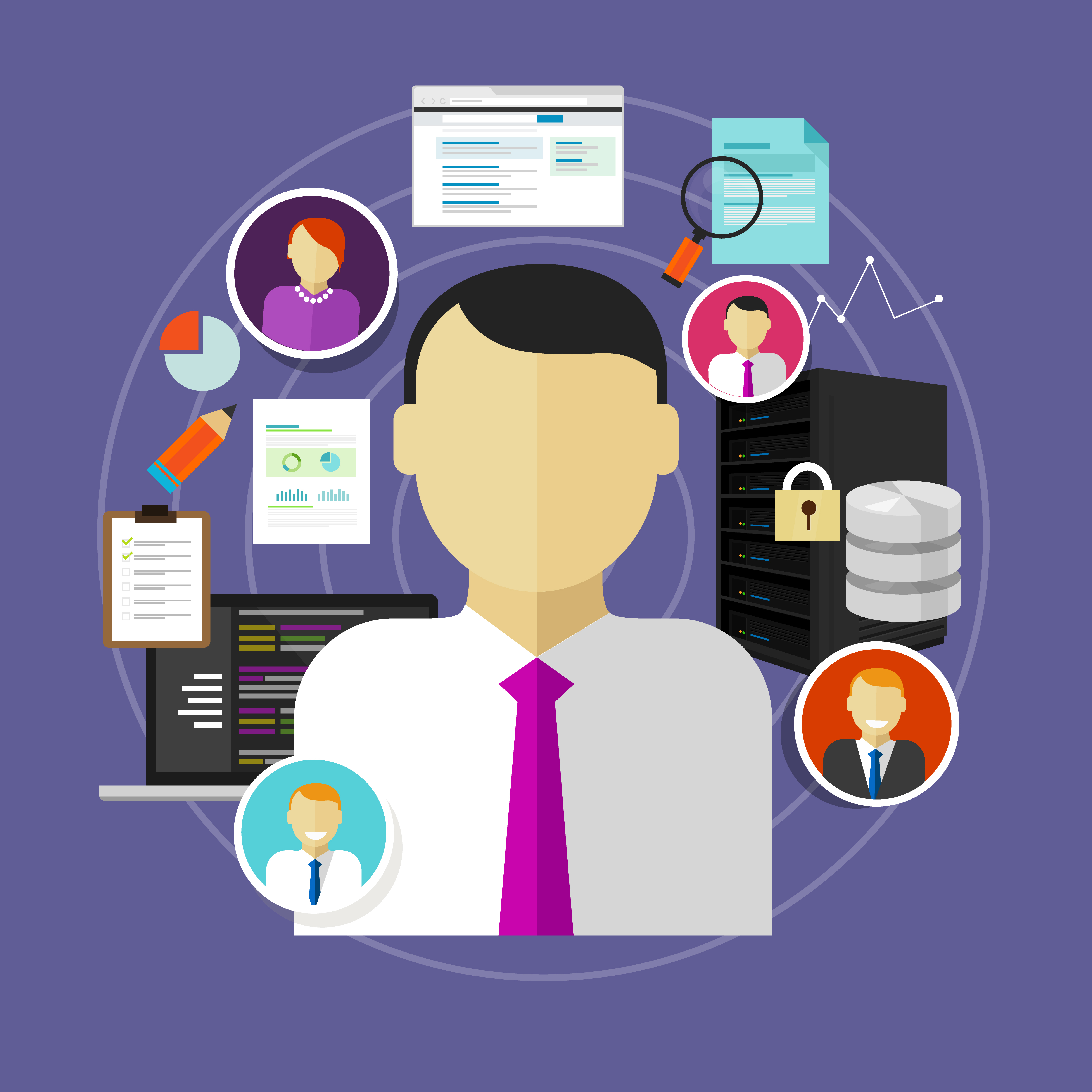 Interview with Antonio Palacios
Interview with Antonio Palacios
What is a Learning Experience Manager?
A Learning Experience Manager is the convergence of two different roles that exist right now, one in the field of software or design, which is that of the user experience person or usability person, and the other one comes from the learning side and it's the instructional designer. And so, when you merge those two together, you're thinking about a broader learning experience that is not confined to, say, the learning management system or the e-learning software that we use, but goes before and after that.
And it looks at learning in general, how is it when I'm looking at some e-learning, what I do afterwards, the activities, how I interact with other participants, social learning, and the technologies, and the activities, and workshops and other tasks that you have to perform as part of the learning experience.
Why is it Necessary to Have Learning Experience as a Field of Speciality?
We're moving very fast. If you think about the time when the first MOOC, the massive open online course was published, it was only in 2008. So, thinking about age, the age of e-learning as a technology and as a way of imparting learning is in its infancy. So at the moment, what's happening is that we still have some roles that are legacy roles in that they look at the software side or at the learning side, but there are very few hybrid roles or roles are bridging the technology with the learning or the technology with many other fields, like data mining and so on.
So, they are needed. I think we are needed. And I feel privileged to be a Learning Experience Manager at Digital Skills right now because not many companies acknowledge that need and the bridging role that has to happen for learning to be really efficient and really high quality.
What is the Role of Learning in Organisational Change?
The role of learning in organizational change is one that I would describe as being a catalyst. So there are, I would quote, probably, methods from the field of human performance improvement and human performance technology where they are looking at six broad areas that have to be managed and planned for at the same time, concurrently.
At the top of that would be messaging and expectations, and how a company, overall, is sharing its vision and what it needs, what it wants to accomplish and what kind of feedback it's giving to the teams. The second one is about tools and resources. And so everything from the desk space that someone would need in order to carry out their duties, to time, to the technologies that have to be used to do that effectively, that would be a second group or category. The third one is about compensation, and reward and consequences.
What happens if I do this right and what happens if I don't do this right? And those would encompass things like values and performance appraisal systems that exist within companies, and so on.
Those first three are environmental, they are not controlled by the individual but they are controlled by the organization. Then we move on to the individually-controlled levers. One of them is the internal motives. That is very powerful, but is one that we cannot control. If I like learning it's something that is my own, it's my taste, my personality, that's who I am. We're not going to be able to change that as an organization. But it's very powerful and it's there.

The fifth one would be the fit. So, am I hiring the right people for the right things? And do the people that I have in the various roles have the ability to do what I am expecting from them. And the sixth one is learning, and training and teaching. And being at the end of the list, you would think, “Well, that's not a very powerful lever,” of the six that I mentioned. And you would be right.
I think that any company that's trying to drive change has to look systematically at the six areas that I just mentioned and see how they can coordinate, orchestrate a deliver change. It has to be planned. How is learning then going to play into this? Well, as I said earlier, I believe that learning is the catalyst. And there are great examples, and I feel I'm privileged in that I've experienced and been an actor in some of these changes where learning was the catalyst. The one that I could mention happened at Microsoft, and it was about instilling a much more stronger sense of user design-driven engineering within Microsoft.
If you think about that change, it's a huge change. It was essentially expecting that every engineer thought differently about how they did everything. The product specifications, the development of the software, the testing of the software, everything. And the way it was coordinated was top-down, there was very deliberate messaging, there were the right tools and resources put in place, there were clear consequences for doing and not doing what was expected of them. But the one thing that created… The catalyst was the workshop. There was a workshop. And even though it was brief, it was one or two days, but that workshop was attended by everyone, including the executives within that organization. The whole organization was brought into it.
They said, “Yes, this is what we're going to do.” Proof of that was that the executive was one of the participants at the workshop. And it was beautiful to see how, right after the workshop, the teams would start producing new artefacts that were evidence that the change was already happening. So, all the different levers for change were used, but learning was definitely the one catalyst that made change happen, that made it real for the individuals in the organization.
How do Evangelists Play a Role?
Perhaps I should start by clarifying what we mean by evangelist or, in this conversation, what we're meaning about evangelist. Because if you go to sales and marketing departments, you're going to see people who carry the job title of evangelist. And I'm not talking about them, I'm talking about people who are passionate about something.
It could be a technology, it could be a new way of doing things, and they're very vocal and they will be willing to reach out to colleagues and tell them, “This is how I'm doing things. This is very exciting because there's a new way and it's a better way of doing things.” As a manager, as a line manager, as an executive, as someone who's trying to drive change, you really need to know these evangelists and be able to identify, scan the organization and identify these evangelists. And this is what I mean by an evangelist. Because they are going to be one of your best allies in driving change.
Evangelists will love the idea of you, as a manager, offering the opportunity to run a workshop where they can teach their colleagues how something can be done better or differently. And it's that excitement and the fact that it's not a manager telling a person how they have to do it, but a very enthusiastic colleague that is telling you, “This is so great, this is something that you should try.” And seeing that is absolutely fantastic, and definitely something that any executive that is thinking about driving change should plan for and bring on board. It was actually great to see organizations, again, like Microsoft, who will be very mindful of the role of evangelists. And they will give them the right space for them to communicate out, including internal social networks and so on, and they will give them the proper recognition for the role that they are carrying out, which is above and beyond their normal expectations.

How Does Digital Skills Use Learning to Drive Change and Develop Evangelists?
So, Digital Skills can help by providing a program that is comprehensive. It's truly an immersive experience in digital skills. It's very valuable in that it's going to give any employee who's probably feeling a bit siloed by the confines of their own organization.
Digital Skills will provide the ability to get that exposure to other industries, to other ways of doing things. And it's part of the creative process when you're able to see parallels, and bring them on board and see how they can work in your own environment. It's about internalizing what's happening outside. So, part of the program at Digital Skills is about that. It's about exposure. It's about meeting other participants, international participants, learning from them and then learning a wealth of knowledge, digital knowledge, about how things can be done differently, in an agile manner, in a creative manner, in a user-friendly manner.
So, all that is part of the value. And, of course, I should mention that every participant will walk away with a new degree from a recognized Irish institution. But going back to change, I think that any organization can avail of this opportunity by using, as I said before, this really broad and great immersive learning experience as part of the catalyst.
As I mentioned before, even if it's not used as part of a broader change drive, evangelists, or someone who goes through the program and likes and loves the program…and frankly, I think that anyone who is going to go through the program is going to love it. And there's a little bit for everyone, project managers, designers, coders, product managers. There are many aspects that they will probably love. They can go back to the organization and become evangelists.
They will probably be able to find and distil the right things for the program that are going to work in the organization because they know the organization well. And by that logic, you could say that if you, as an executive, have identified a number of evangelists within your organization who are enthusiastic about digital and making the organization more digital, they will probably be excellent candidates to sign up for the Digital Skills program because that will definitely empower them with the right tools, knowledge and connections to be great ambassadors of digital and evangelists within the organization.